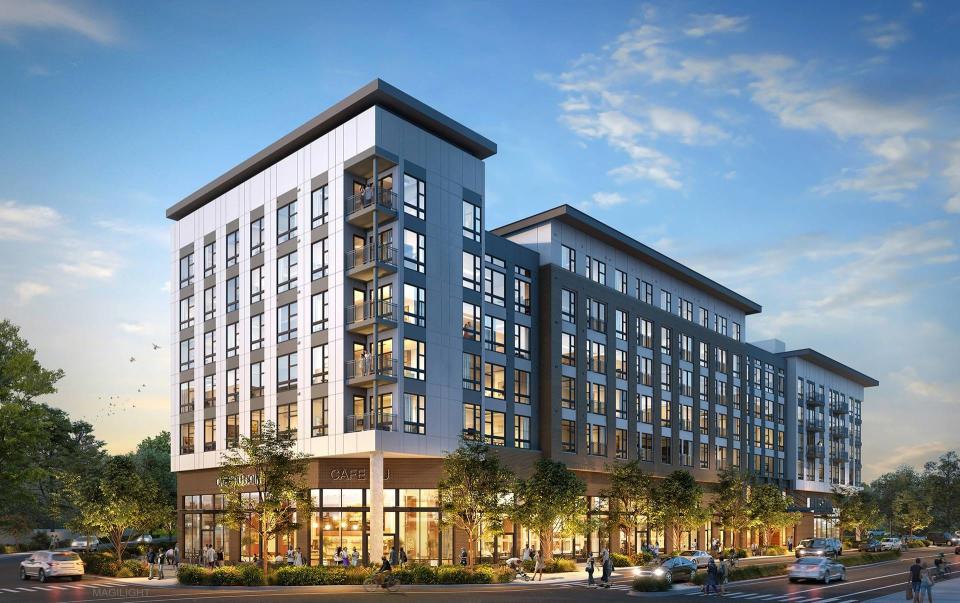Will RI be the first state to create a public housing developer? That plan is up in the air.
For more than a year, Rhode Island has been weighing whether to become the first state in the country to create its own public development arm.
Over that time, the state has created a new Housing Department with an influential, Cabinet-level secretary, awarded more than $100 million to affordable housing projects and debated new laws to streamline the construction permitting process.
But whether state housing officials will take the step of forming a public development agency supported by its own revolving fund of money remains up in the air after the release of the House's $14-billion state budget proposal last week.
The budget, which is scheduled for a full House vote on Friday, would re-appropriate $10 million for public housing developers that was included in last year's budget but not spent.
And it says that $10 million "may take the form of a revolving fund that shall direct funds to support low income public housing."
It leaves the final decision on whether to use that $10 million for a public development fund, or something else, up to Housing Secretary Stefan Pryor, who has been supportive of the idea but noncommittal.
What would a public housing developer do?
The idea of a state public housing developer is a top priority of Reclaim Rhode Island, a progressive group also advocating for tenant protections and other measures to deal with the home-affordability crisis.
The group has touted a program in Montgomery County, Maryland, which Shekarchi has also been complementary of, that builds "social housing" style apartment buildings with a mix of market and below-market rent units. Rental profits flow back into the revolving fund to help finance more buildings.

"We are disappointed that the budget as currently written does not establish a public developer financed through a revolving fund," Reclaim co-chair Daniel Denvir said in an email. "The budget does state that the Housing Secretary 'may' set up a revolving fund and finance it by issuing bonds. We are waiting for clarity from both the Speaker and Secretary Pryor as to whether they indeed intend to work with Reclaim and public housing authorities to set up such a revolving fund, and how they plan to finance it."
$10 million doesn't go far, but speaker says there is 'ample money' in the department
Although the $10 million was approved in June 2022, Gov. Dan McKee's administration didn't do anything with it until Pryor's Housing Department put out a request for proposals from local public housing authorities last month. The deadline for applications is June 30.
With today's building costs, $10 million doesn't go far, and it is not clear how $10 million could be used to satisfy applications for the RFP and a public developer.
State Rep. June Speakman, who sponsored a bill to create a public housing revolving fund as well as several bills in the House development permitting package, asked Shekarchi about it at a House budget briefing Tuesday.
"Housing has lots of money," Shekarchi said. "I think they did better than any other department in terms of requests ... There is ample money for many different programs in the Housing Department."
In addition to the $250 million in federal funds approved for housing a year ago, the new House budget includes, among other things, another $29 million McKee requested in the spring, a new state low-income housing tax credit and funding for 22 new employees in the Department of Housing.
The Department of Housing spokesman Joseph Lindstrom said Pryor "remains intrigued" by the idea of "proactive housing production and the revolving fund."
"We intend to explore these ideas with Rhode Island stakeholders and to take an even closer look at how these efforts have played out in other communities such as Montgomery County, Maryland," he said. "The proposed proactive development entity that is currently in the budget for $1.4 million is another tool that can be utilized further to consider and plan for potential next steps."
Shekarchi: “I look forward to meeting with Secretary Pryor and encouraging him to study the feasibility of implementing this program in Rhode Island. I am aware that no other state has established such an initiative, but I believe it is an idea that has great potential."
Whatever happens to the initial $10 million, Reclaim wants the state to borrow more to seed a revolving fund and pay for upgrades to existing public housing.
The group hopes Shekarchi and Pryor "will commit to substantially expand that revolving fund by issuing the necessary bond, either through RIHousing or a General Obligation Bond," Denvir wrote. "In addition, we propose that a portion of the bond be set aside to set up a zero-interest, long-term loan fund for public housing authorities to undertake much-needed repairs and improvements to their existing properties."
This article originally appeared on The Providence Journal: Rhode Island housing crisis: Public developer plan in limbo

